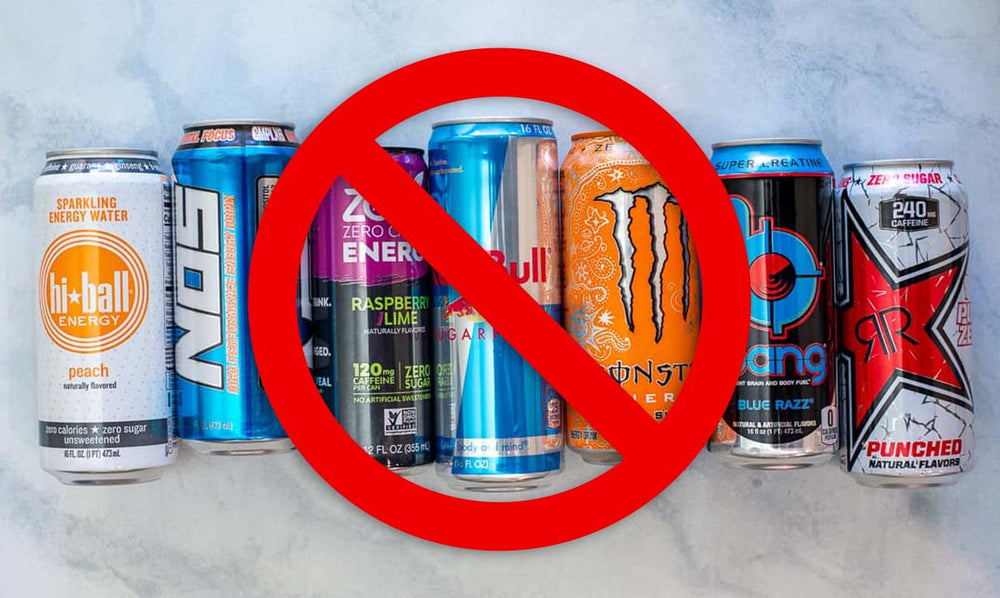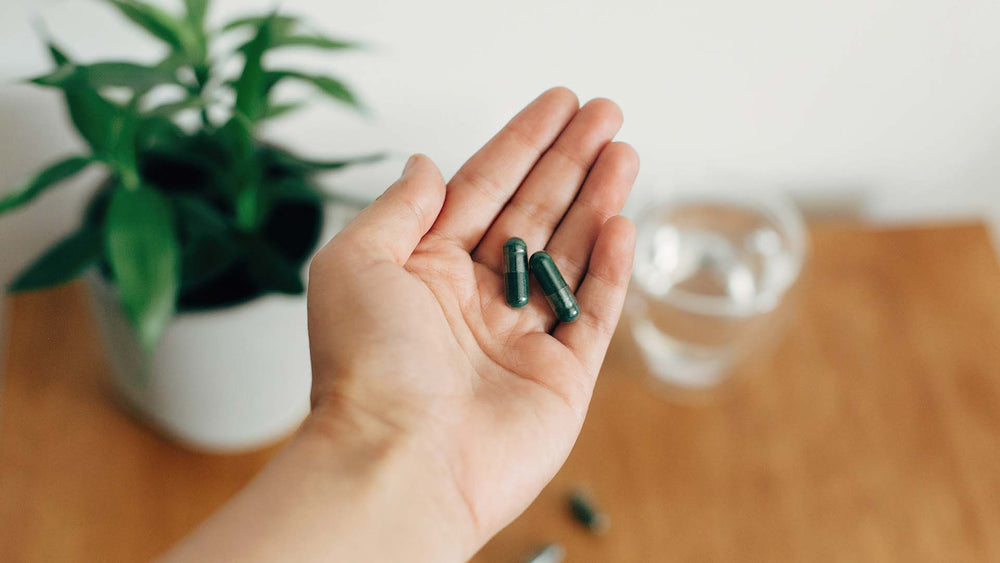Most people perform their daily tasks in a robotic state, doing what they need to do without giving it much thought. Memories of the past and worries about the future take up much of their time, with little attention paid to what they're doing in the moment.
When you don't live fully in the present, you miss out on opportunities and possible friendships. Being preoccupied sets you up for accidents and may cause you to be a victim of crime. Luckily, there are ways to learn how to be mindful, and you will see some results almost instantly.
-
Learn to Relax
High stress makes it harder to be mindful of every situation as it arises. If you find yourself running from appointment to appointment, and forgetting details in the present because you're too focused on the future, develop relaxation techniques. These techniques could include meditation, deep breathing, journaling, exercising, or even talking to a close friend. When you feel anxious or nervous, it will be more difficult to be mindful. Experiment with relaxation techniques.
Spend a few minutes at the beginning or end of each day doing nothing – just relax without any other goal in mind. Drink a cup of tea and watch birds in your backyard trees, or take a walk around the block.
You should also meditate at least a few minutes each day. You don't need to sit cross-legged for an hour like a yogi; just sit in a comfortable quiet place, concentrate on your breathing, and clear your mind.
What you eat may also affect your stress level. Avoid doughnuts, potatoes chips, French fries, soda and other high-calorie comfort foods when you feel stressed. Instead, drink green tea, which contains the calming amino acid, L-theanine, or a moderate amount of red wine, which contains flavonoids to lower blood pressure. Spicy foods like curry, which contain curcumin, release endorphins to boost your mood and shield the brain against stress.
-
Concentrate on Mundane Activities
If you tend to rush through everyday tasks, like brushing your teeth, washing your hair or doing the laundry, slow down. Instead of thinking about something else while you perform the activity, focus on what you're doing. Your mind will wander, but bring it back to the task at hand.
When you are able to focus fully on small, and admittedly boring, tasks you'll be better equipped to be mindful of important work tasks. And you might even discover a more efficient way to clean your house or do laundry.
-
Focus on Your Senses
When you're worrying about what you have to do tomorrow, or that mistake you made at work yesterday, you miss out on the beauty of little things as they are happening. The next time you buy a drink at the local coffee shop, take time out to smell the aroma of the coffee. Enjoy the sights and smells – and the process – of cooking your favorite dinner. Smell the flowers you bought from the supermarket before putting them in a vase as mere decoration.
It helps to pretend you are a child again, experiencing these sensations for the first time.
-
Listen Fully to What Others Say
Pay attention to everything that's being said when you are having a conversation with someone, listening to a lecture, or even watching TV. You may daydream, think about what you're going to say next, or make internal judgments about what's being said.
You'll miss some of the nuances of what's being said when you do this, and you won't receive the full benefits of the conversation or lecture. Concentrate on what's being said in the moment, and trust your intuition when it comes time to respond.
Watch a movie or TV show when you're ready to treat it seriously, not as background noise while multi-tasking. You'll enjoy the experience more, and you may learn something you might have missed if you hadn't paid attention to it.
-
Be Mindful of Your Breathing
Overcome shallow breathing by learning how to perform the Complete Breath, a yoga breathing exercise designed to invigorate body and mind.
Sit in a quiet place where you won't be disturbed. (You can also lie down, stand or even walk while you perform a complete breath and still receive the benefits.)
Lift up your shoulders and inhale deeply, pumping your stomach up with air like a balloon. Let your stomach slowly deflate. Repeat this five to ten times. Remember to inhale and exhale slowly and concentrate on the breath.
When you feel stressed, take three, slow deep breaths. Deep breathing helps lower your blood pressure, heart rate and allows for better oxygen intake.
-
Begin and End Your Day Without Electronics
Take time to wake up in the morning without turning on your phone or checking your email. Make breakfast, take a shower, exercise, meditate or brew a cup of coffee instead.
Delay checking your social media or favorite website until you've taken care of other, more important and fulfilling matters in the physical world.
-
Eat Mindfully
Pay attention to what you eat and how much you eat. Chew your food slowly, so you swallow small pieces and have less chance of choking. When you scarf down food, it interferes with proper digestion and may cause you to ingest air, which causes hiccups.
Mindful eating helps prevent emotional eating and makes you more aware of your junk food binges. By thinking about what you eat when you eat it, you'll be better equipped to curb bad habits. You won't be able to lie to yourself or have a selective memory about overeating or bad food choices.
-
Take Small Steps to Improve Your Life
Building a better life takes time. No matter how hard you try to be more mindful, find a new job or lose weight, it probably won't happen overnight. You need to work on it little by little.
Practice one or two mindfulness exercises on the first day, and then add on to your successes as you become sharper and more “in the moment.” Eventually the cloud of automatic thoughts and actions will lift and you'll see an improvement in all areas of your life.
Mindfulness includes being more aware of our feelings and needs and what you really want in your life now. If any part of your life makes you uncomfortable, angry or depressed, determine why that's happening and correct it.
-
Be Mindful of Interactions with Others
It can be hard to pay attention to strangers on the bus, in the checkout line, in the doctor's office, or at other locations throughout the day. We focus on ourselves, our family and our Smartphones without really noticing other people around us.
The next time you're at the store or at a meeting or event, be aware of the people around you, even if they're not in your immediate group of friends.
Make eye contact with others.
Say please and thank you.
Smile.
Hold the door open for someone.
These actions take the focus off your inner thoughts and bring you into the moment. Being more aware of your surroundings and what people around you are doing helps sharpen your sense of observation and your social skills. Remaining aware of your surroundings at all time is a lot safer than being preoccupied, too.
If you still have problems being mindful after following these tips, try using a mindfulness app. There are 500 mobile apps on the market, with Headspace and Smiling Mind are the highest-rated apps. Once you've had some success using the apps, turn them off and adapt to being mindful without the electronic reminders.
-
Be Aware of Stress in Your Body
Do a type of mediation called a body scan to relieve stress and improve your physical and mental health. A full body scan meditation takes 30 to 40 minutes and helps you notice which parts of your body exhibit the most stress. The face, neck, shoulders and stomach seem to retain the most stressing most people, but stress can affect any part of your body.
It may take a few tries before you can master a body scan. Be aware of any tightness or pressure in your arms, legs or other body parts. You're not going to diagnose the reason for these sensations, but merely notice they exist.
Breathe in and breathe out, then concentrate on a part of your body and then another. Acknowledge any sensation and then move on to the next part of your body.
A body scan helps you become more aware of bodily sensations. It calms you down by forcing you to breathe deeply and focus on parts of your body that may be plagued by tightness, queasiness or other problems caused by anxiety.
-
Practice Gratitude
In our fast-paced world, we often become so fixated on what we don't have we ignore all our blessings. Focus on what you have, not what you want (or think you want). Create a general list of things you're grateful for – good health, a bright smile, loyal friends – and add all the smaller things you're grateful for on a daily basis.
Whether you realize it or not, you have many positive experiences each day that you may not acknowledge. Maybe the person ahead of you in line at the supermarket exchanged places with you, or your boss let you leave ten minutes early last Friday. We have many small kindnesses to be grateful for, and they all add up to make our lives better. When you appreciate the good in your life, you become more connected to other people and the world around you.
Take a gratitude walk in your yard, your basement or your living room. Walk purposely for a few minutes and look downward, saying something you are grateful for with each step. This short exercise combines the physical and the emotional, and makes you more mindful of both your body and the good things in your life.
-
Single-Task, Don't Multi-Task
Multi-tasking encourages you to do two things at once – eating dinner while watching TV or stocking clothes at a retail store while helping customers at the same time. While we all need to do two things at once occasionally due to circumstance, it is damaging to your brain to multi-task consistently.
A Stanford University study found that multi-taskers are easily distracted and can't recall information as readily as people who concentrate on one task at a time. Your brain can only focus successfully on one task at a time. When you do two or more tasks simultaneously, your performance will falter.
A University of London study also found that regular multi-tasking also lowers IQ. Focus on one task at a time at work – answer your emails, then move on to writing, then working on a spreadsheet, etc., and you'll get better results.
Be fully engaged in what you're doing, whether it's writing a report for work or playing baseball with your friends. You'll enjoy it more, and you won't feel scattered or distracted.
Make Mindfulness Part of Your Life
Mindfulness is a 24 hour a day, 7 day a week state. Sure, you can still have moments when you daydream or drift off into the past or future, but mindfulness – being aware of the here and now – should be your regular state.
Wake up and smell the coffee – or the roses – by being mindful. It will change the way you think, the way you speak and how you act.
You won't worry about the future or the past, and you'll make the best of right now. As the saying goes, there's no time like the present.
Exercise and a good diet will help you become more mindful. Taking care of your physical health improves your energy and focus. Even if you already eat healthy foods, you can boost concentration and feel better by taking Happy Girl Mood Enhancer from Wheatgrass Love. Happy Girl contains wheatgrass, which has over 300 vitamins, minerals, amino acids and enzymes. We've also added cayenne pepper, green tea extract, ginkgo biloba, ginger and other herbs to boost your mood and increase focus. Read more about Happy Girl here.
















